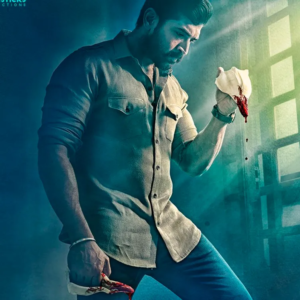A camera operator records footage for films, TV programs, music videos, commercials, and other video content. They have several other titles, including:
- Cameraman
- Camerawoman
- Cameraperson
- Cameraman operator
- Professional video camera operator
- Television camera operator
- Film camera operator
- Shooter
- Steadicam operator
- Camera op
Camera operators film footage for projects that will be edited and distributed in the future. They can also film footage for live broadcasts, such as sporting events, concerts, and live news.
Daily tasks vary according to the camera operator’s industry, but they usually include:
- Discussing shooting requirements and filming and editing techniques with directors and producers
- Helping production crew members set up the production space and filming equipment
- Discussing how to achieve the director’s vision with lighting and technical crews
- Framing and capturing camera shots for productions as directed
- Rehearsing complicated shooting, including work with a Steadicam rig
- Producing footage according to shooting schedules and call sheets
- Shooting with cameramen, camera equipment, and technology to enhance production values
- Supervising and delegating tasks to camera assistants
- Helping the camera team break down and organize filming equipment
The rise of digital technology has changed the way many camera operators work. Camera operators using digital cameras can easily choose from a wide variety of camera angles during filming. They download digital images and work with different camera software to produce cleaner shots. However, some productions and camera operators still use analog cameras. These camera operators must load physical film into their cameras and think carefully about their choice of lenses.
What Skills Do Camera Operators Need?
Camera operators rely on a combination of technical abilities and soft skills to succeed. Studios often look for camera operators with the following skills:
- Visual and aesthetic instincts for identifying the best angles
- Hand-eye coordination for capturing clear footage
- Verbal communication skills, including active listening, to understand shooting assignments and delegate tasks to assistants
- Ability to operate portable remote-control digital cameras and analog cameras
- Ability to operate film equipment like mobile mountings and cranes
- Confidence using camera software when shooting digital footage
- Understanding of framing, lighting, color theory, and other elements that can impact the shot
What Traits Do Camera Operators Need?
Camera operators often share similar traits that make them well-suited for their work. Successful camera operators usually have the following qualities:
- Creativity for capturing unique footage
- Intuition for anticipating the right camera choices, especially when capturing live events
- Attention to detail for identifying and capturing small yet significant moments
- Diplomacy for mentioning problems in the shots without making cast members self-conscious
- Calmness, even near deadlines or on high-pressure shoots
- Physical fitness for carrying heavy filming equipment
- Ability to focus for long periods of time
- Tolerance for heights for shooting on cranes or scaffolding
Educational and Training Requirements for Camera Operators
There are no essential educational requirements for camera operators. However, some studios may prefer candidates with bachelor’s degrees or film school diplomas. A still photography class can help camera operators improve their shots. Aspiring camera operators usually undergo a mix of formal instruction and practical experience before seeking operator jobs.
Most camera operators accept entry-level camera operating roles after graduating. Earning an entry-level role is easiest for people with some formal film qualifications. Camera operators without this education often start their careers as production assistants. They may then become camera assistants before earning camera operator roles.
Types of Camera Operators
Several different types of professionals are classed as camera operators. Some of the special types of camera operators include:
- Studio camera operators work in a studio environment and film from a fixed position, usually as part of a team of camera operators.
- Electronic news-gathering camera operators work on location capturing news, often live as it occurs.
- Cinematographers work on films in studios and on location, often employing creative techniques.
Employment Facts for Camera Operators
Being a camera operator can be a difficult but rewarding job. Learn more about what it’s like to be a camera operator:
Job Outlook
The Bureau of Labor Statistics groups camera operators with film and video editors. It notes that there were 67,900 operators and film and video editors in the U.S. in 2019. Most of the camera operators in this group work full time. However, camera operators working in the film industry may have significant periods of downtime between film projects. This is especially true of freelance camera operators.
The BLS estimates that jobs for camera operators and film and video editors will grow by 18% between 2019 and 2029. This is much faster than the national average. The rise of online platforms, including streaming services, may increase opportunities for these professionals.
Earnings for Camera Operators
According to the Bureau of Labor Statistics, camera operators and film and video editors earned a median annual salary of $40,300 in 2019. As many of these professionals are freelance workers, the median hourly wage of $19.38 is also worth considering. Freelancers who are not union members must negotiate their salaries. Wages vary according to the project and the camera operator’s experience.
Unions, Groups, and Associations
The International Cinematographers Guild Local 600 is the leading membership group for camera operators. This organization provides rate cards for its members, which helps them secure better wages. It also makes sure its members have medical coverage, overtime pay, and health and safety protections.
Other helpful resources for camera operators include:
Workplace
Camera operators may work in studios or on location in any part of the world. They could spend several consecutive months away from home while shooting. Production periods usually involve long hours, with overtime being a necessity.
Camera operators working for scripted TV programs and films have relatively safe workplaces. However, camera operators working for news programs may work in uncomfortable or dangerous conditions. For example, they may film outside during storms.
Advancement Opportunities
Motivated camera operators have plenty of career advancement opportunities. With time, practice, and experience, camera operators can become directors of photography, cinematographers, or directors. Continuing education gives camera operators the opportunity to learn new skills, which is useful for advancement.
Tips for Getting Started as a Camera Operator
Camera operators need strong connections to get regular work, which can make breaking into this field challenging. However, these tips can help you get started:
- Volunteer. Working for free on student films or interning at a camera rental store can be a great way to make connections and learn camera basics.
- Start small. Few camera operators start their careers working on blockbusters. Short films and independent features can be great stepping stones while you learn the craft.
- Practice framing and composition. These skills can help you get the right shots every time.
- Get your own operator camera. Camera operators often need to bring their own cameras for filming. That’s especially true for specialist cameras, like Steadicams.
- Pay attention to the framing when watching films. You might even try replicating your favorite shots with your own camera.
Working as a camera operator is a rewarding career for people with the right technical skills and passion for their craft. If you’re interested in learning more about being a camera operator, apply to Nashville Film Institute to gain professional qualifications as a camera operator.











